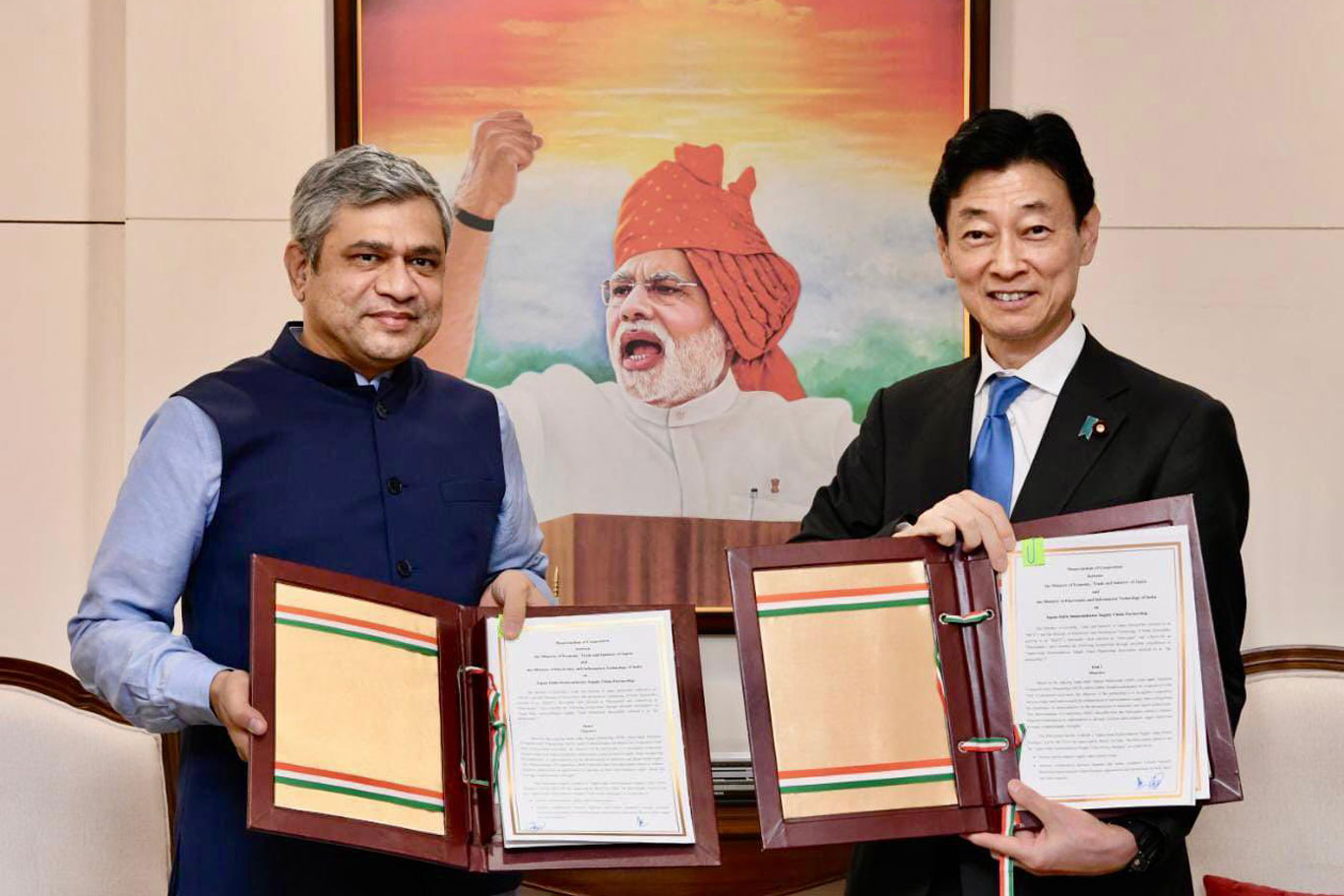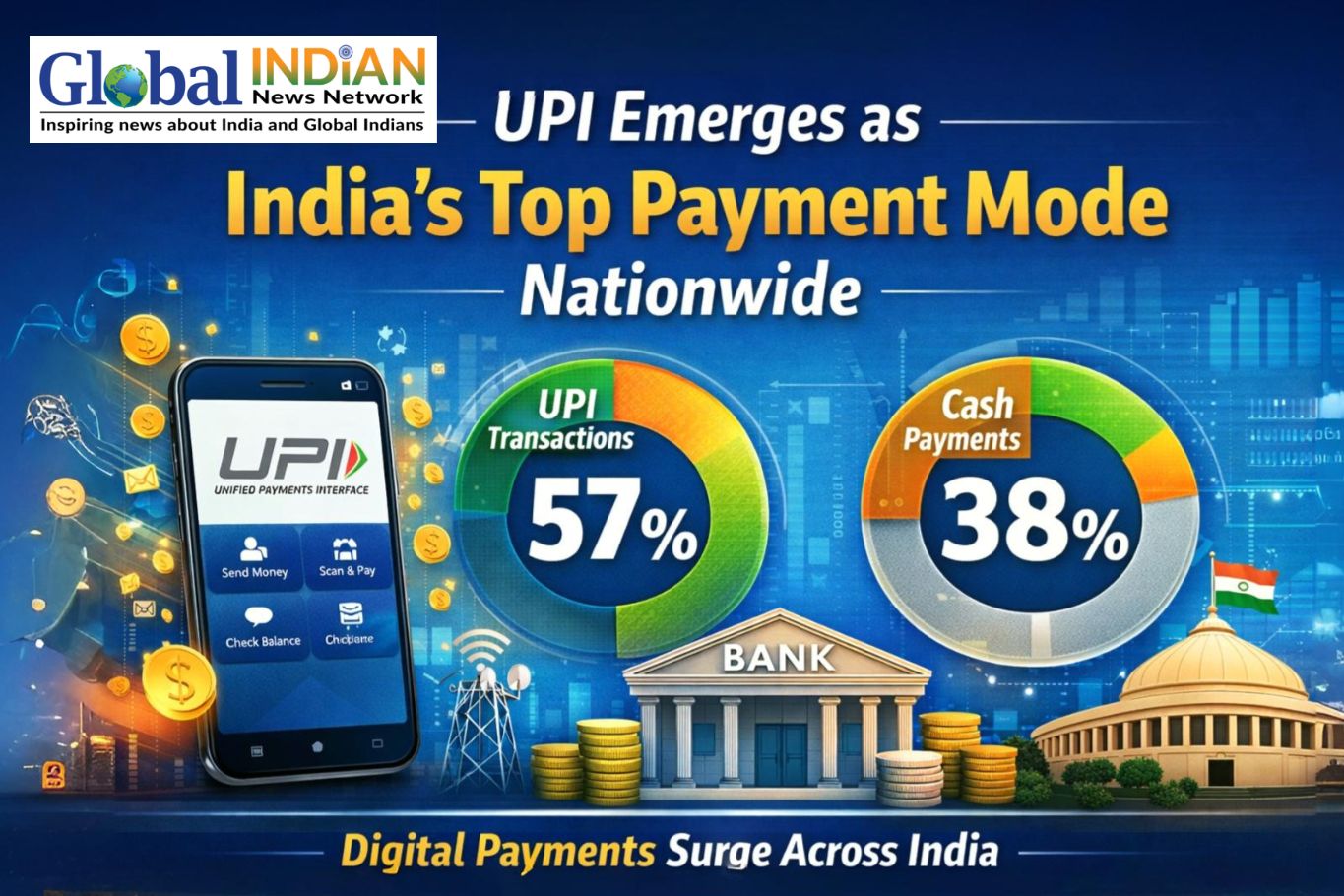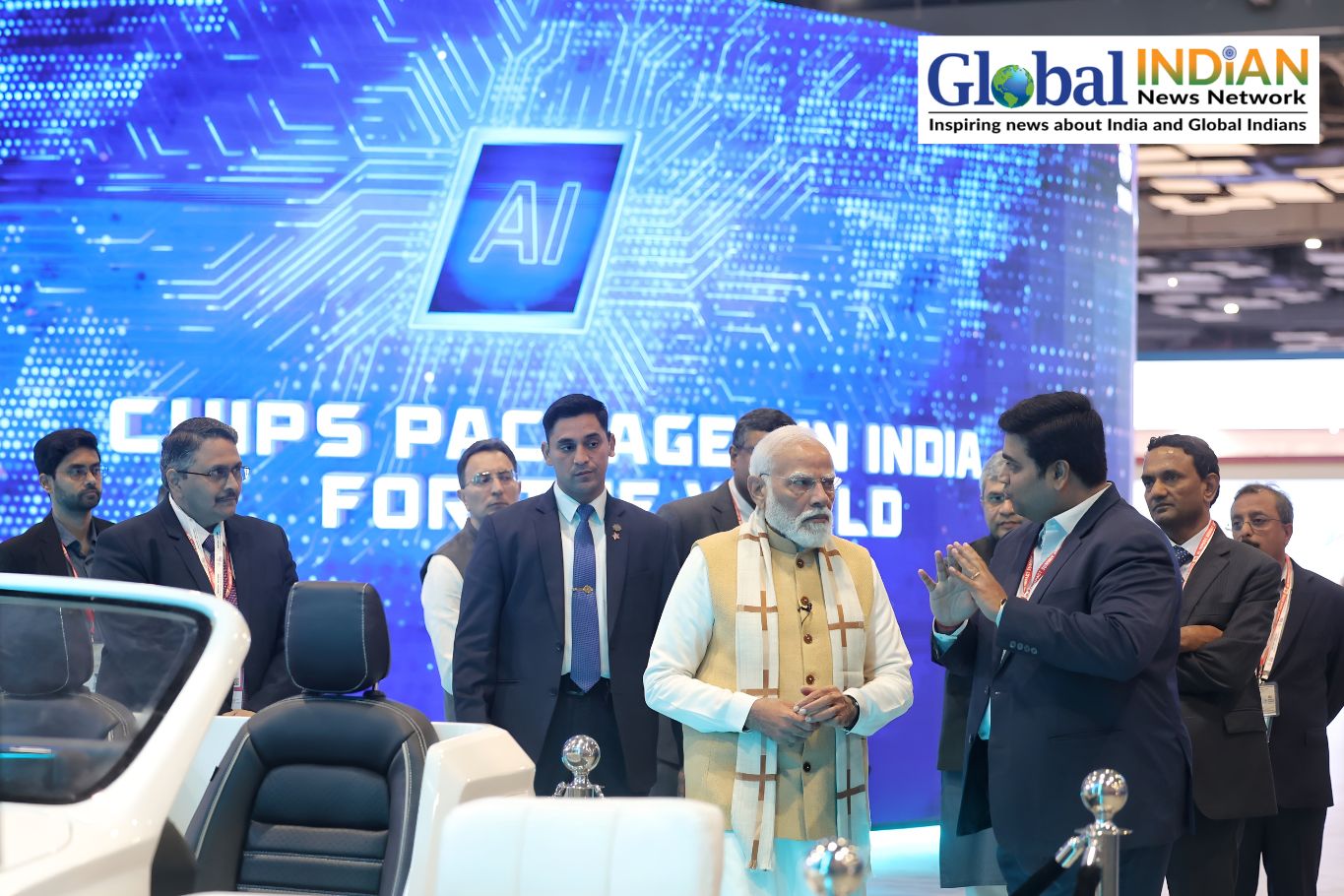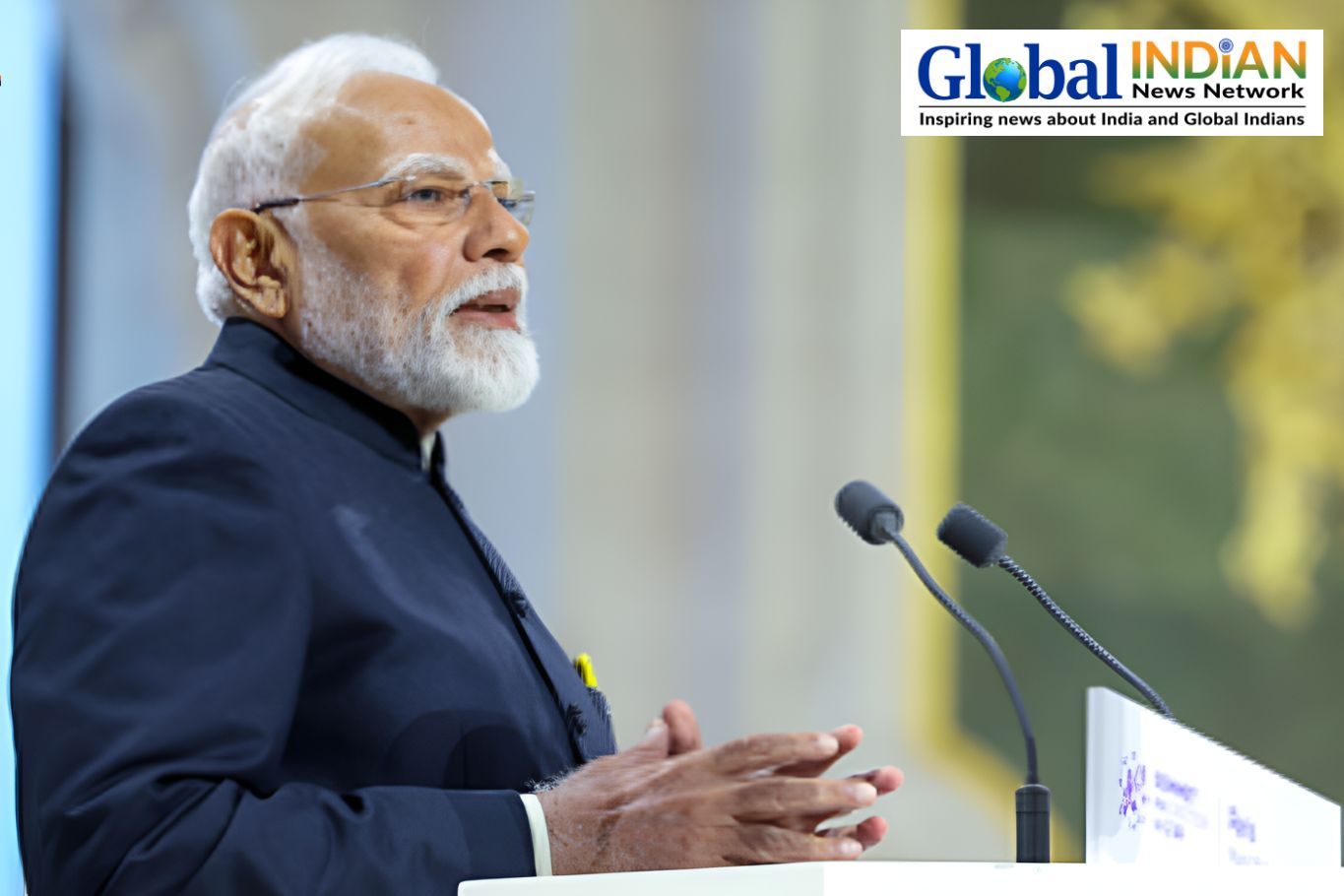 India’s Minister for Electronics and IT, Ashwini Vaishnaw, and Japan’s Minister of Economy, Trade, and Industry, Yasutoshi Nishimura, recently signed a memorandum of understanding aimed at enhancing the semiconductor industry. The agreement focuses on semiconductor design, manufacturing, equipment research, talent development, and ensuring resilience in the semiconductor supply chain. This move makes Japan the second Quad partner, after the United States, to collaborate with India in jointly developing the semiconductor ecosystem and safeguarding the global supply chain.
India’s Minister for Electronics and IT, Ashwini Vaishnaw, and Japan’s Minister of Economy, Trade, and Industry, Yasutoshi Nishimura, recently signed a memorandum of understanding aimed at enhancing the semiconductor industry. The agreement focuses on semiconductor design, manufacturing, equipment research, talent development, and ensuring resilience in the semiconductor supply chain. This move makes Japan the second Quad partner, after the United States, to collaborate with India in jointly developing the semiconductor ecosystem and safeguarding the global supply chain.
The signing ceremony took place in the national capital, and both countries expressed their commitment to creating an “implementation organization” to facilitate government-to-government and industry-to-industry cooperation. India’s Minister Vaishnaw emphasized the importance of a resilient semiconductor supply chain and highlighted India and Japan’s partnership, which was influenced by Prime Minister Shri Narendra Modi Ji’s successful state visit to the United States, where various agreements were signed.
Japan possesses about 100 semiconductor manufacturing plants, ranking among the top five countries with a robust semiconductor ecosystem. Minister Vaishnaw pointed out that the semiconductor industry is expected to grow from $650 billion to a $1 trillion industry, necessitating a considerable talent pool and substantial growth worldwide. Japan views India as a valuable partner, combining complementary strengths to achieve this growth.
The minister also noted Japan’s expertise in key areas like raw semiconductor materials, chip manufacturing equipment, and display technologies. The aim is to bring this expertise to India, representing a significant milestone. The Indian government has already initiated discussions with Japan’s state-backed semiconductor industry body, Rapidus, for potential collaboration in this domain.
Regarding concerns about China restricting the export of critical semiconductor elements like gallium and germanium, Minister Vaishnaw stated that the impact has been minimal as there are multiple alternative sources of these elements worldwide.









